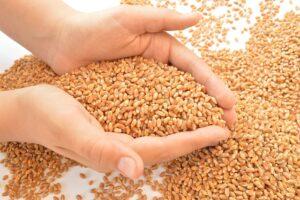The autumn corn sowing season is about to begin
The fungal diseases that appeared after the cool, rainy spring caused significant problems for the fall corn seeds as well. According to the Interprofessional Organization and Product Council of the Seed Association, in the upcoming sowing season, the use of controlled, metal-sealed seed and seed treatments against fungal diseases will be of particular importance for the sake of production safety. Despite the high level of production costs, end-user prices of metal-sealed seeds are expected to be at a lower level than last year.

(Photo: Pixabay)
Precipitation and cool weather characterized the spring period of 2023. As a result, yellow rust and other fungal diseases appeared in a significant part of the country. The combined effect of these can be clearly seen in the autumn wheat and barley harvest results, which in many cases are significantly lower than expected.
In the case of autumn barley, compared to previous yield estimates, the average seed yield may be several tons short
The negative consequences of autumn virus infections and fungal infections affecting the flag leaf also appeared in the seed propagations, which had an impact on seed germination and seed health. In the fall sowing season, for the sake of production safety, the use of controlled, metal-sealed seeds and seed treatments against fungal diseases will therefore be of particular importance, emphasized Géza Takács, President of the Seed Association Inter-Trade Organization and Product Council. Géza Takács explained: taking into account the NÉBIH’s data on breeding areas and the expected metal locking possibilities, the expected stocks of winter wheat, winter barley and triticale seeds provide a professionally acceptable renewal possibility of over 40%. Based on the information received from the membership of the association, the amount of the old stock is minimal and does not have a significant effect on the new stock. The expected average yield for seed-purpose winter wheat and winter barley will be around 4.0-5.4 tons/hectare, and for triticale around 4 tons/hectare.
Corn crop prices are currently significantly lower than a year ago
Producers are expected to significantly reduce their costs, and seed is expected to be no exception. As in the previous years, the committee of the relevant section of the Seed Association conducted an extensive survey this year, and after processing the received information, it published an informational price for the second season of autumn ears. for reproductive grade seeds: in the case of winter wheat it is HUF 158,000/ton + VAT, while in the case of barley and triticale it is HUF 141,000/ton + VAT. The informative price refers to the packaged, wrapped, metal-sealed seed and is meant to be loaded on a vehicle at the seller’s premises. This price is not a fixed, binding or recommended price. The specific contract price is determined by the parties themselves. The information price does not mean price fixing, its primary purpose is to indicate and publish expected market price information.
It is important not only for the members of the association (who are also producers), but also for the commodity producers, that high-quality seed of proven origin is planted in the ground and that the necessary quantity is available.
VSZT
Related news
ENAR data reconciliation for cattle, sheep and goat, pig and poultry farmers is underway until the end of March
🎧 Hallgasd a cikket: Lejátszás Szünet Folytatás Leállítás Nyelv: Auto…
Read more >Related news
EY Businessman of the Year: Tibor Veres is the grand prize winner, six special awards were also given out
🎧 Hallgasd a cikket: Lejátszás Szünet Folytatás Leállítás Nyelv: Auto…
Read more >









